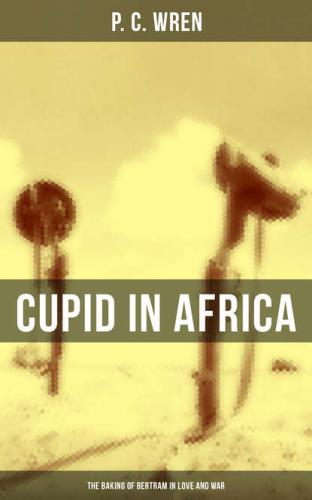They contrasted strongly with a company of tall, hairy Sikhs, almost twice their size, man for man, but with evidences of more enthusiasm than discipline in their bearing. Another interesting unit was a band of warriors of very mixed nationality, under a huge Jemadar who looked a picture of fat contentment, his face knowing no other expression than an all-embracing smile. It was whispered later that this unit saw breech-loading rifles for the first time, on board the Elymas, having been more familiar, hitherto, with jezails, jingals, match-locks, flintlocks, and blunderbusses. Probably a gross exaggeration, or an invention of Lieutenant Stanner, of the Hundred and Ninety-Eighth, who gave them the name of “The Mixed Pickles.”
All three of these detachments were Imperial Service Troops—that is to say, were in the service of various Indian Rajahs—but were of very different value, both the Gurkhas and the Sikhs being as good material as could be found among native troops anywhere in the world.
To Bertram, the picture of the little Gurkha Subedar, the tall Sikh Subedar, and the burly Jemadar of the Mixed Pickles, was a very interesting one, as the three stood together on the wharf, eyeing each other like three strange dogs of totally different breeds—say, a fighting terrier, a wolf-hound and a mastiff.
With a snap and a slick, and a smart “One two,” a company of British Infantry arrived and embarked. Beside the Mixed Pickles they were as a Navy motor-launch beside a native bunderboat. At them they smiled amusedly, at the Sikhs they stared, and at the Gurkhas they grinned appreciatively.
The news having spread that the Elymas would not start until the morrow, various visitors came on board, in search of friends whom they knew to be sailing by her. Captain Stott, R.A.M.C., came over from the Madras hospital ship, in search of Colonel Haldon. Murray and Macteith came down to see Stanner, of the Hundred and Ninety-Eighth, and one Terence Brannigan, of the Baluchis. . . .
“Who’s the chap on your right, Colonel?” asked Captain Stott, of gentle and kindly old Colonel Haldon at dinner that evening. “Rather an unusual face to be ‘in’ khaki—or one would have said so before the war,” and he indicated Bertram.
“Dunno,” was the reply. “Stranger to me. Nice-lookin’ boy. . . . Looks a wee-trifle more like a chaplain than a butcher, as you say,” though Captain Stott had not said that at all.
Seeing Bertram talking to Murray and Macteith after dinner, Captain Stott asked the latter who he was, for physiognomy and character-study were a hobby of his.
Macteith told him what he knew, and added: “And they’re sending that half-baked milksop to British East” (and implied: “While I, Lieutenant and Quartermaster Reginald Macteith, remain to kick my heels at the depot.”)
Next day the Elymas began her voyage, a period of delightful dolce far niente that passed like a dream, until one wonderful evening, the palm-clad shores of Africa “arose from out of the azure sea,” and, with a great thrill of excitement, hope, anxiety and fear Bertram gazed upon the beautiful scene, as the Elymas threaded the lovely Kilindini Creek which divides the Island of Mombasa from the mainland.
Конец ознакомительного фрагмента.
Текст предоставлен ООО «ЛитРес».
Прочитайте эту книгу целиком, купив полную легальную версию на ЛитРес.
Безопасно оплатить книгу можно банковской картой Visa, MasterCard, Maestro, со счета мобильного телефона, с платежного терминала, в салоне МТС или Связной, через PayPal, WebMoney, Яндекс.Деньги, QIWI Кошелек, бонусными картами или другим удобным Вам способом.
